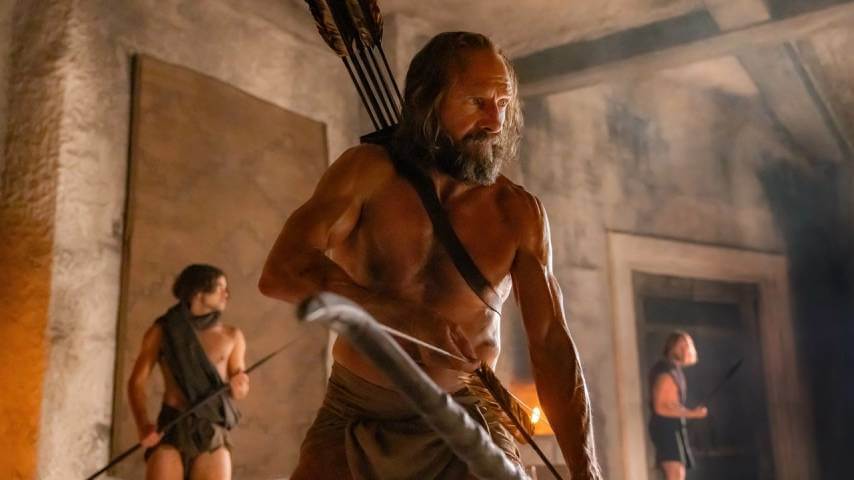The Odyssey Returns, Stripped Bare by War’s Scars
Uberto Pasolini’s "The Return," arriving in theaters on December 6, 2024, offers a stark vision of Odysseus’ homecoming. This isn’t your typical heroic tale of adventure; instead, it’s a raw exploration of war’s enduring trauma, stripped of mythic embellishments and bathed in the harsh dimness of a world forever altered by conflict.
"The Return" picks up near the end of the legendary saga, following Odysseus back to Ithaca after a grueling two decades away. In the hands of Fiennes, who delivers a performance brimming with palpable weariness, Odysseus is less a cunning trickster and more a man haunted by the ghosts of Troy.
Gone are the gods and fantastical creatures of Homer’s epic. This Ithaca is a hollow shell of grandeur, scarred by neglect and overrun by a band of opportunistic suitors who prey on Penelope’s (Juliette Binoche) unwavering loyalty. Their depravity underscores the film’s bleak sensibility, adding a chilling layer of tension to Odysseus’ already burdened soul.
As Odysseus grapples with his past, the script, penned by John Collee, Edward Bond, and Pasolini, skillfully weaves in moments of reflection, painting a portrait of a man inextricably marked by the brutal realities of war.
"Why do men go to war?" Penelope asks, a poignant question hanging heavy in the air, seeking answers that elude Odysseus and perhaps the filmmakers themselves.
Spoonfeeding no easy solutions, the film dives into the unsettling aftermath of violence, questioning its necessity and its enduring consequences.
The heart of the film lies in the internal conflict resonating within Odysseus.
He returns carrying the weight of a thousand victories, but the cost of those triumphs is etched onto his face, a burden he wrestles with as he contemplates confronting the suitors.
The director employs a minimalist approach, favoring close-ups on Fiennes’ weathered features, mirroring the protagonist’s internal focus. Marius Panduru’s cinematography, often shrouded in shadow, visually echoes Odysseus’ tortured psyche. Gone are sweeping vistas; instead, we are drawn into the intimacy of his struggle.
Pasolini has opted for a crucible of psychological tension over epic spectacle, offering a nuanced portrait of a hero grappling with the aftermath of war. While the film’s relentless somberness may not appeal to those seeking a traditional epic, "The Return" shines as a compelling character study, anchored by Fiennes’ powerful performance and daringly exploring the enduring scars laid bare by the spectre of war.
**


